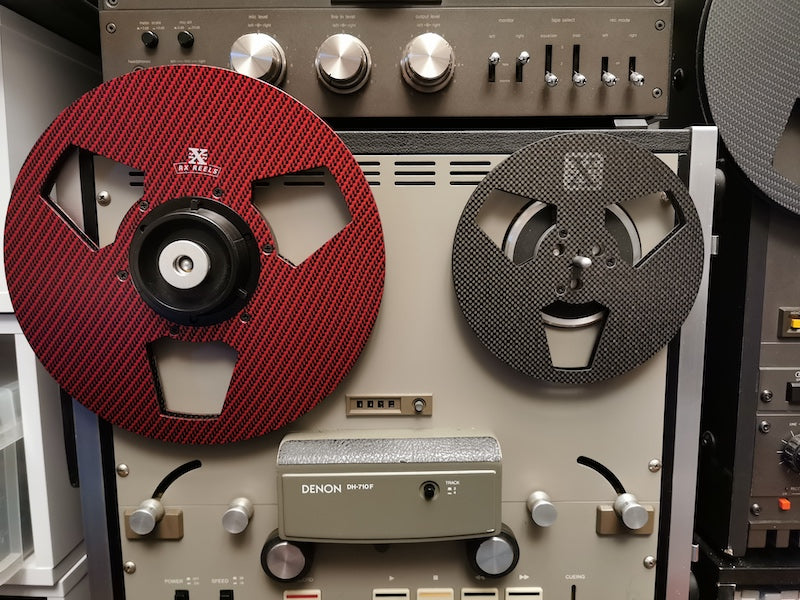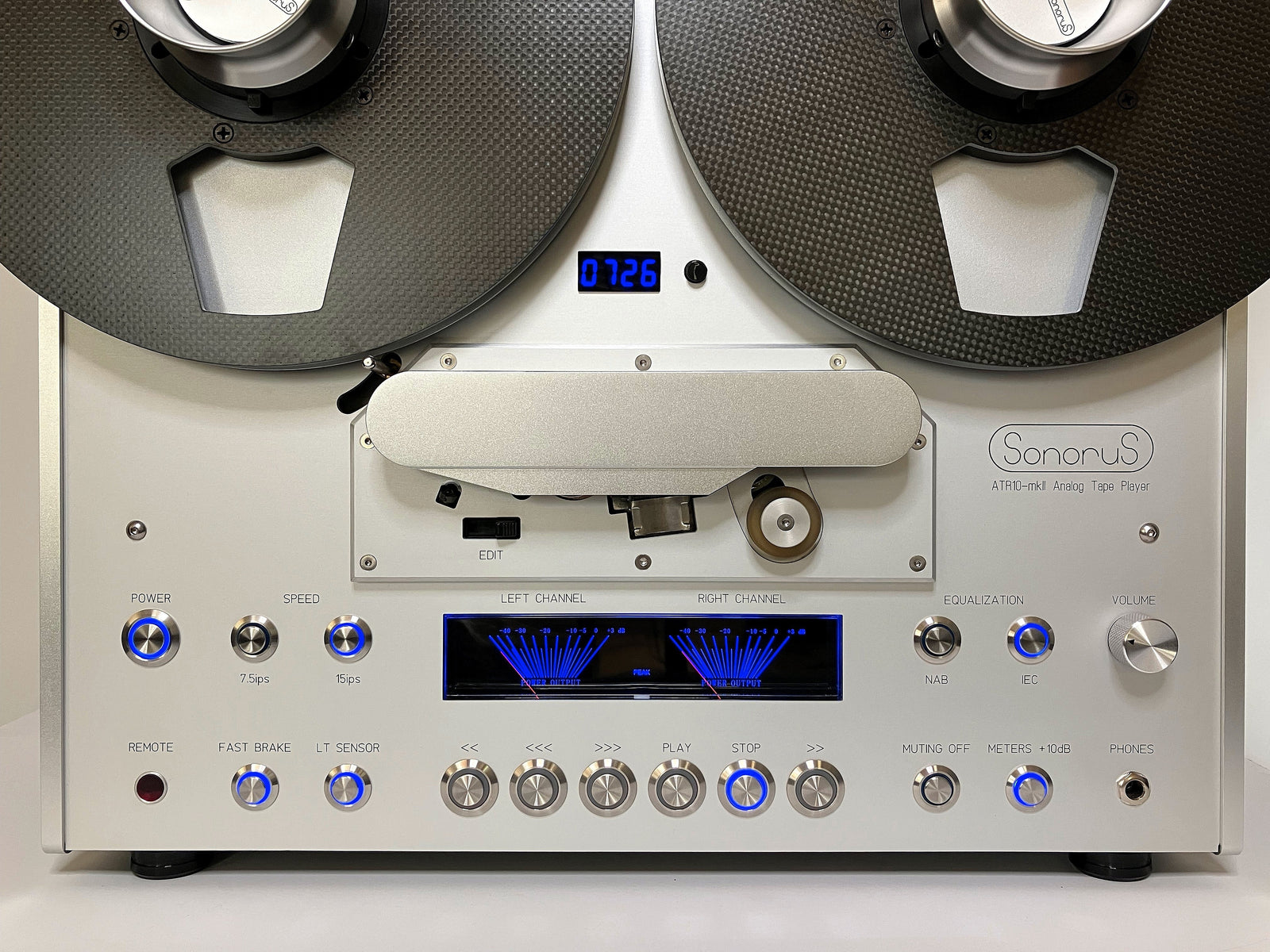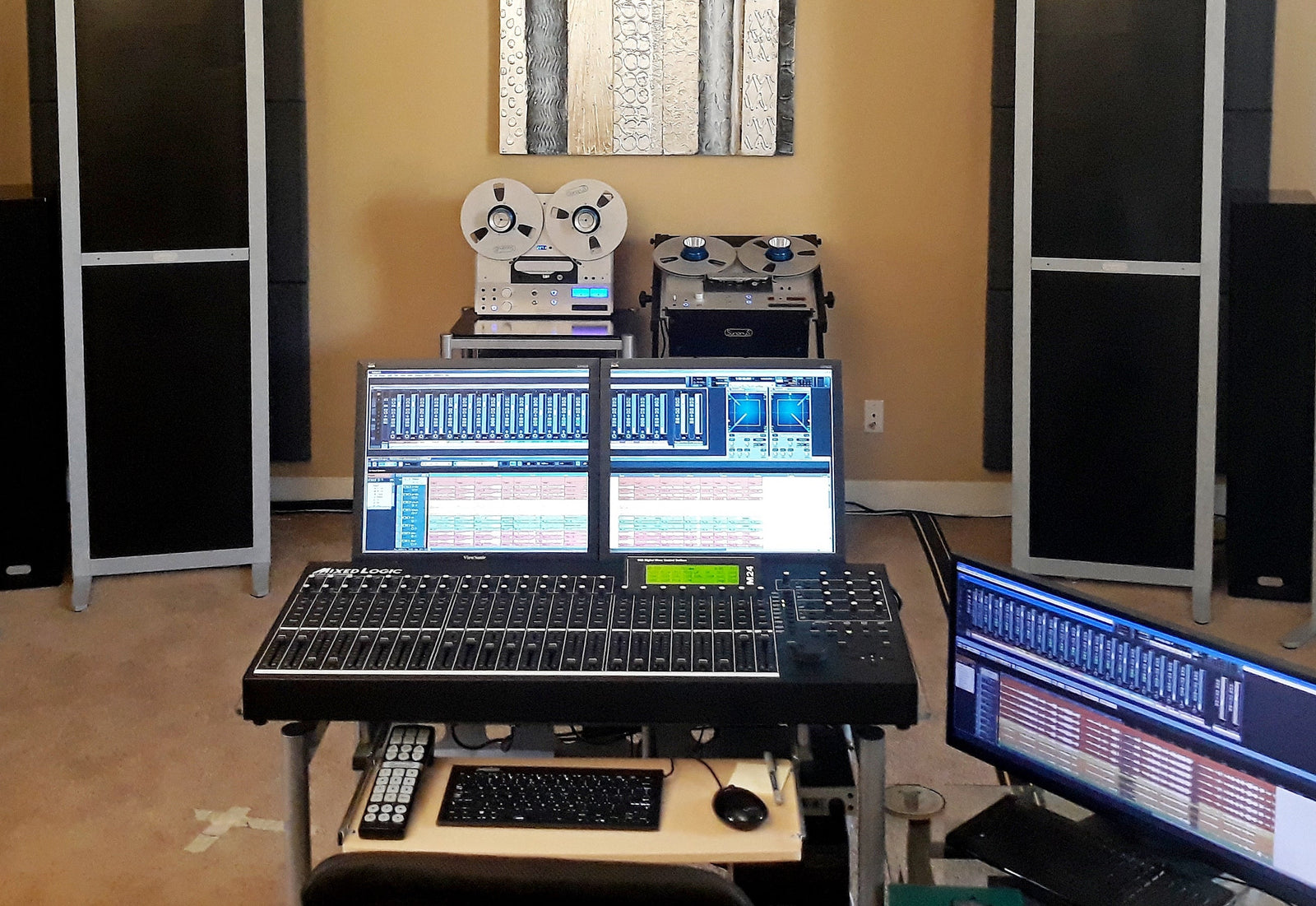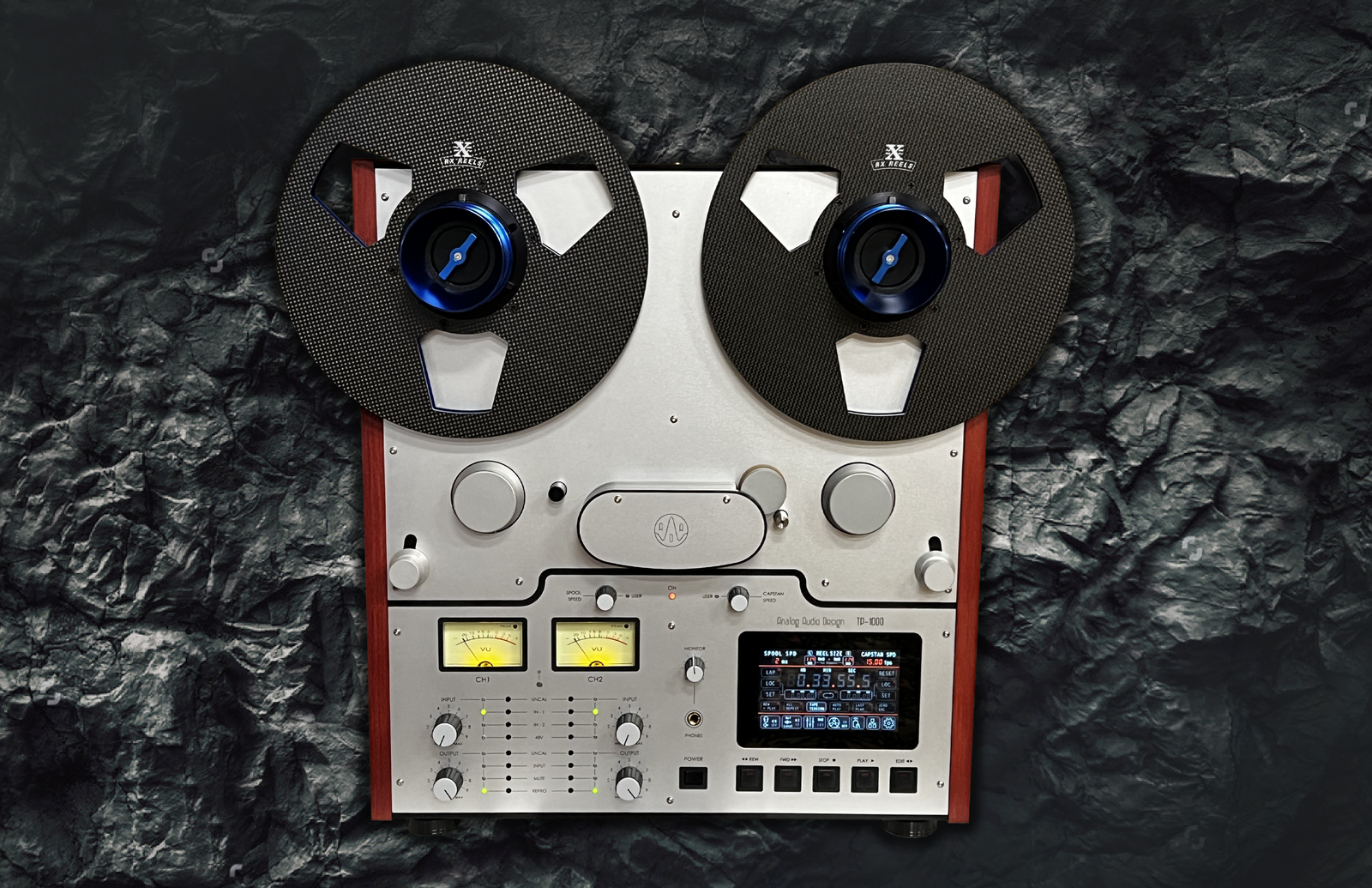Your Cart is Empty

Ken's original article in PS-Copper Magazine in September 11, 2022 was of our 7" pre-production reels. This is Ken's review of the production spools we recently released for purchase.
If you recall my installment in Issue 171, I recounted how my incessant pestering of Kevin Root of RX Reels drove him to silence me by producing a 7-inch version of his magnificent 10-inch carbon fiber spools. At that point, I had been treated to a visit by Kevin to the UK, who arrived with pre-production samples, all but identical to what would go on sale. I have now received the actual production versions, and they’re even nicer than the promise of the spools with which he appeared.
A few of points before I go into the findings. The first is that you need to visit rxreels.com to find the US price, as I am UK-domiciled and it only comes up in pounds. [At press time, prices ranged from $175 to $239 – Ed.] The second is that it is always worth visiting the site, as there are occasional discounts to be had, e.g., on ex-demo or slightly cosmetically-flawed spools. The third is that I am writing this follow-up because I have made it my raison d’être to support any venture which benefits the reel-to-reel revival.
To that I must add a qualifier: I haven’t tried every original-equipment, aftermarket or current spool available. What I can say is that I have, in the main, been disappointed with a few too many which lacked rigidity – here I would cite especially the 7-inch spools from TEAC – but equally I have been impressed by the spools used by the current labels offering pre-recorded 15 ips tapes on 10-inch reels, such as those employed by STS.
As the photos seen here tell you, I have now tried the new 7-inch spools on five of my 10 machines, mainly to show how wise RX was to stick with the natural gray of the carbon fiber they’re using for the flanges. RX opted for carefully-devised economies to keep the prices attractive, such as offering only the one color. As you can see here, it complements a number of decks. The way it matches the Technics RS-1500 and Revox A77 Mk IV might be accidental or deliberate but it matters not to me: I just love the way they look on those machines.

Image: RX Reels' 7-inch reel on a Technics RS-1500

Image: Here's one on a Revox A77 Mk IV
But prettiness is not enough to inspire you to part with up to $175 for a take-up reel for your 7-inch tapes, so now to the main part: performance. In no way do I want to open up the can of worms which would cause those of you with decades of hands-on studio experience to tell me how I am full of guano should I attribute to these spools any virtues whatsoever – functional or sonic. So I won't even bother with the latter. As for the former? That’s another story entirely.
As I found out when Kevin dropped by with the prototypes, regardless of which deck I used, they seemed to spool more evenly both in the side flushness of the spooled tape and in the centering of the tape on the hub. The latter is an issue which crops up frequently with some plastic spools. (Remember: I am only interested in commercially-available pre-recorded tapes pre-1985, and do not concern myself with anything else, including blanks from TDK, Maxell, Scotch, Ampex, etc., hence my daily dealings with plastic spools.)
You Might Also Enjoy: A Definitive Guide to Reels for Open Reel Tape Decks by Neville Roberts

Image:close-up of the RX Reels' 7-inch spool showing the aperture for the location peg on a Denon DH-710F deck
This problem with plastic reels usually manifests in the tape stubbornly refusing to center itself, thus causing it to scrape against one of the flanges. And, no, it is not an issue with the alignment of my tape decks’ tape paths, tensioners, pinch rollers et al., as I have enough to try different machines with troublesome tapes. And it’s always the tapes, not the decks.
Why is this important to me? It’s down to my near-Herculean challenge of curating the 2,500 used tapes I’ve acquired, of which I still have 200 or so to clean up, re-spool and audition. What surprised me was the remedial effect of the RX Reels when I found myself curating a Loretta Lynn (R.I.P.) tape, Hymns (Decca ST74-4695), which had clearly been played only the Lord knows how many times. On its spool, it looked so poorly wound or stretched that I was expecting it to fall to pieces.
As has been described before, my regimen with used tapes is to fit leader tape, fast-forward the tape, add a tail, and then spool it back onto the original reel in real-time. Then, after letting it rest a day or so, I sit down and listen to it. With this tape, as with others in similar states of neglect, it spooled onto the RX reel a little bit better than its previous state, but not as perfectly flat, as discovered when running one’s finger along the sides, as I had hoped. But what happened after that is why I find the RX reels – how do I put this? – “therapeutic” as far as the tape being curated is concerned.

Image: 10-inch and 7-inch reels on an Otari MX-5050
Lo and behold (sorry about the Biblical tone, but this was not Loretta in a secular vein), the tape when re-spooled onto the plastic reel was as perfectly flat as if it had just come from the factory. Decca’s plastic spools were heavier than most, while wiser veterans than I have pointed out that in some cases, plastic spools can be superior to metal ones for precision and dependability (see TEAC, above), but I was not expecting such restorative results.
I have now replaced all but two of my 7-inch take-up spools with RX reels. One which remains in situ is the superb reel that Pioneer supplied with the RT-707, and the other an unbranded reel which matches it for rigidity, but from now on, the RXs are my go-to take-up spools. The more cynical or suspicious among you will no doubt presume that I am delusional, attributing impossible capabilities to an inert device, but both my eyes and fingertips tell me otherwise.
As for my ears? Sonic improvements are subjective, so I won't wind you up with what I’ve been hearing. But the wow and flut – no, I can't bring myself to tell you.
Header image: RX Reels' 10-inch and 7-inch reels on a Denon DH-710F tape deck. All images courtesy of the author.
RX Reels prides ourselves on manufacturing the world's best carbon fiber reels. Learn more about us and why Ken Kessler calls our carbon fiber reels, "among the mechanically best I've ever seen."
Looking for a great player? See Our Ultimate Guide to Reel to Reel Players


This post delves into the topic of making enhancements to the actual recorded media on reel-to-reel tape. Numerous vinyl albums have been remastered, and indeed, several hundred tapes have undergone remastering from the master or near-master. These offer notable improvements in sound quality compared to the original recordings. Sonorus Audio offers a Holographic Imaging tape remastering service explored here.

Analog Audio Design's first product, the TP-1000 is wholly constructed from new components, utilizing technologies such as computer-aided design and advanced testing tools to augment tape transport and minimize distortion.
The all important heads are from AM Belgium, the same company that inherited the head technical specs directly from Studer / ReVox when they shut down.
The TP-1000 stands out as a three-motor machine using DC motors, all uniquely coupled by a belt and a flywheel to a modern design. Why? To reducing the cogging and flutter commonly associated with DC motors.